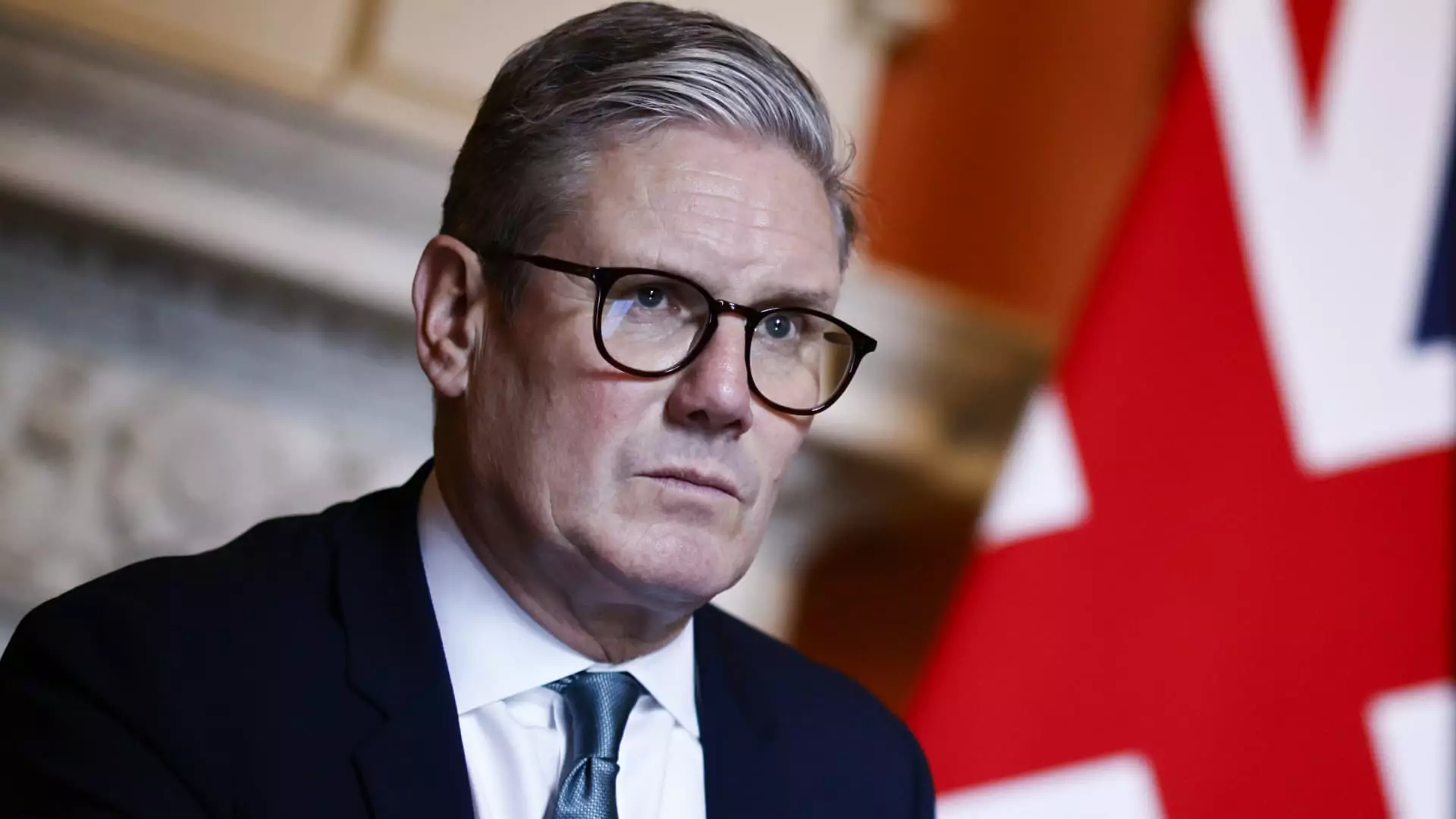The resignation of Sue Gray, chief of staff to UK Prime Minister Keir Starmer, marks a significant moment for a government still basking in the glow of a recent electoral victory. Her departure comes in the wake of murmurs regarding friction among Starmer’s advisory team, signaling potential instability within a cabinet that was expected to foster unity and change following 14 years of Conservative leadership. Gray’s resignation, announced after persistent media speculation regarding her role and compensation, exposes the pitfalls of governance where internal strife overpowers external focus.
Starmer’s Labour Party enjoyed a resounding win earlier this year, a mandate that carried with it the weight of expectation for reform and stability in a country weary of Conservative policies. However, even before Gray’s exit, Starmer’s government faced criticism, notably regarding his association with questionable free gifts from affluent donors, which have tainted his reputation and raised eyebrows during a period of public austerity. This juxtaposition of lavish gifts against the backdrop of cuts in financial assistance for key demographics, such as pensioners, has rendered Starmer vulnerable to scrutiny, illustrating the tightrope that modern-day politicians must walk between maintaining donor relations and meeting public needs.
Sue Gray’s appointment was noteworthy not only because of her former role in investigating the previous administration’s scandalous behavior but also as a symbol of continuity in addressing governance issues. Her transition to the role of envoy for regions and nations seems an effort by Starmer to keep her within the fold while recalibrating the strategy following her high-profile tenure. This strategic shift indicates a significant rethinking of leadership approaches as Starmer brings in Morgan McSweeney, indicating a desire for fresh perspectives amid persistent challenges.
As the Labour Party seeks to establish itself firmly in power, the dynamic is complex. The newly formed communications team, led by veteran journalist James Lyons, points to an acknowledgment that effective messaging is crucial in managing both public perception and internal collaboration. The looming budget statement on October 30 will reveal whether Starmer and his chancellor, Rachel Reeves, can pivot from a rocky start to a more assured governance style that resonates with citizens hoping for meaningful change.
Opposition parties, particularly the Conservatives, have wasted no time in exploiting the perceived chaos birthed from Gray’s exit and the controversies surrounding ministerial gifts. Their narrative frames Starmer’s Labour as an ineffective administration that has devolved from a transformative force into one of self-interest. As the political landscape evolves, the efficacy of Starmer’s leadership will depend on his ability to navigate these turbulent waters while addressing the pressing concerns of the electorate effectively.
The evolving story of Keir Starmer’s government underscores the complexities of political leadership in a climate of heightened expectations and scrutiny. With crucial decisions on the horizon, Starmer’s capacity to stabilize his team and restore public confidence in his administration will be vital for sustainable governance.


Leave a Reply